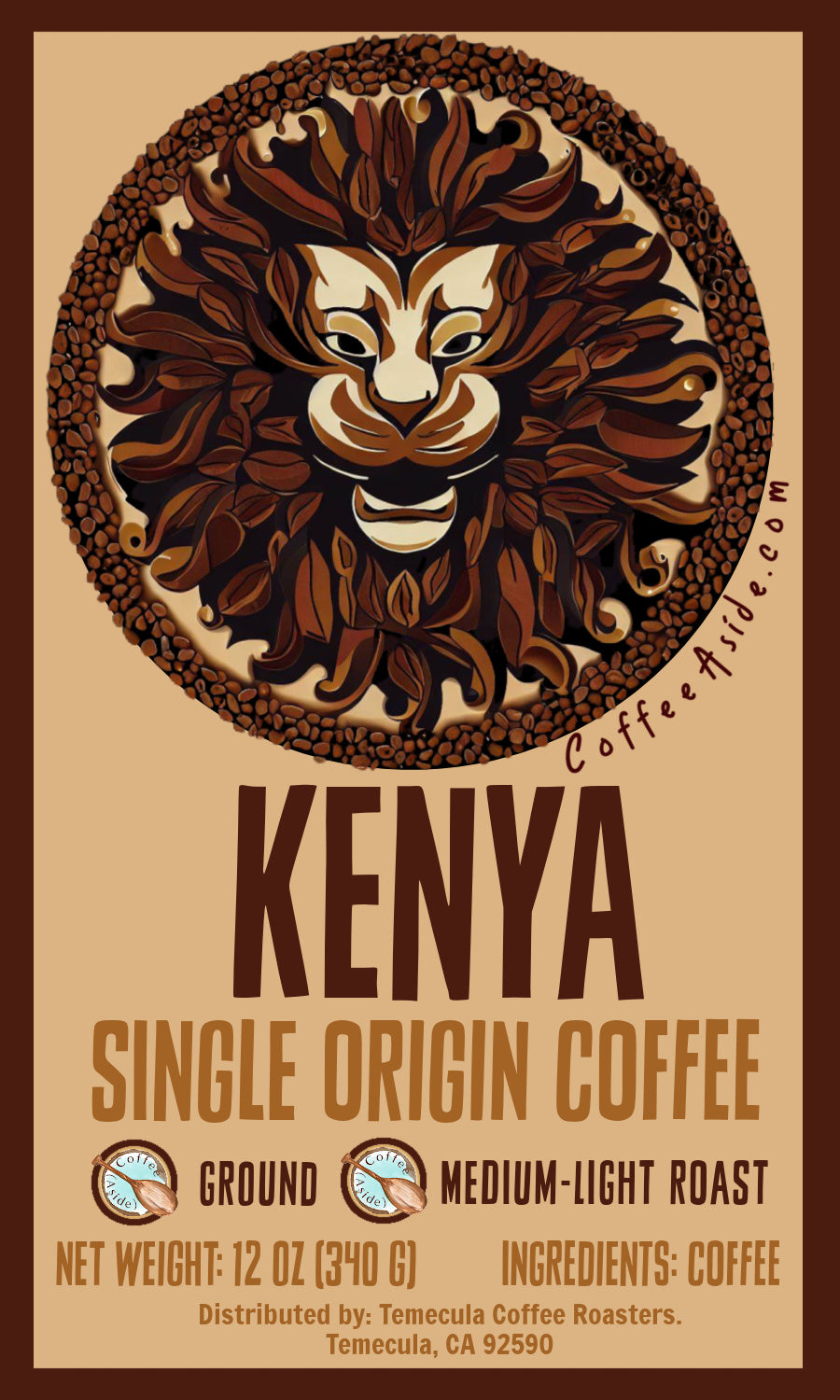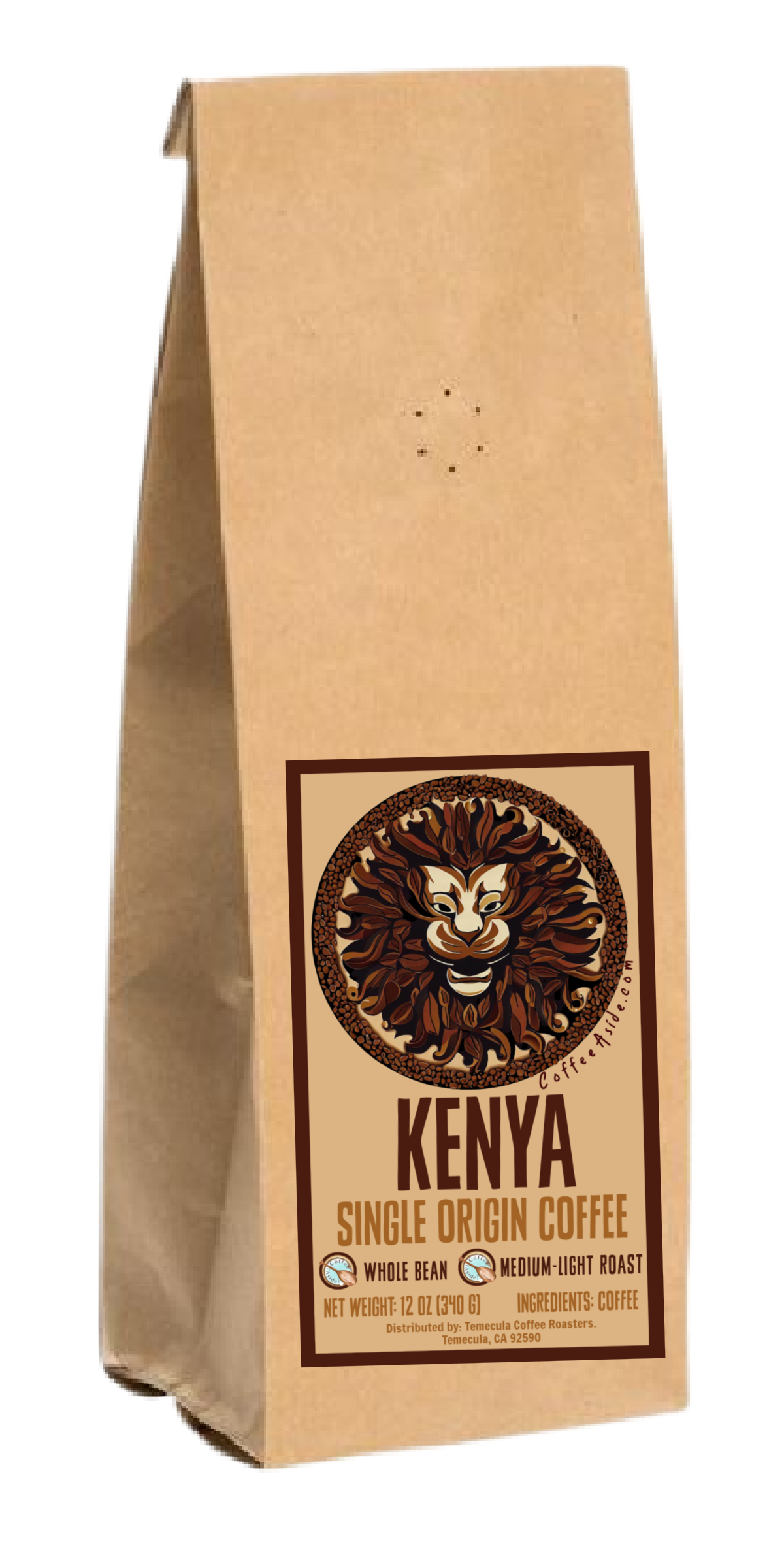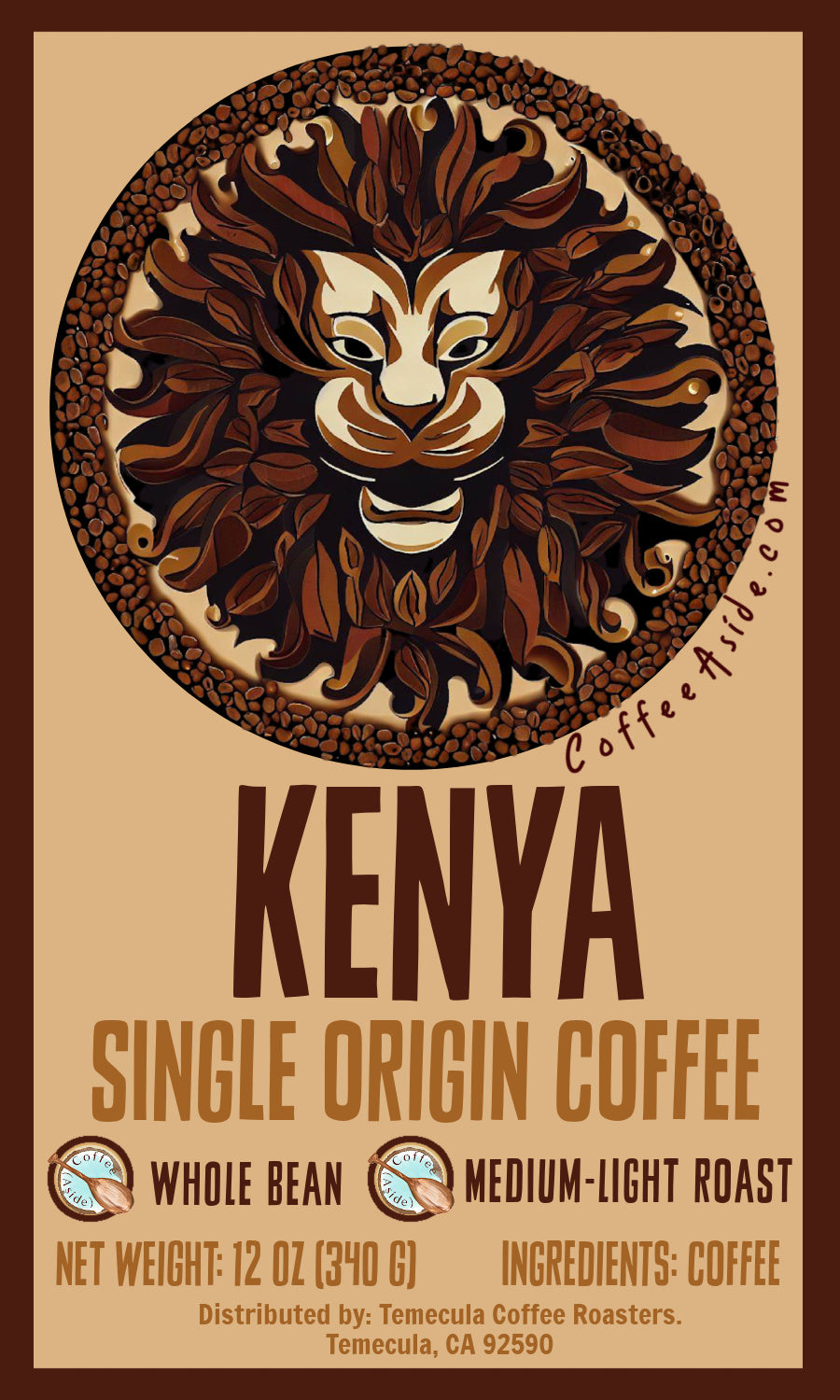1
/
of
6
Kenya Single Origin; 12oz [FREE SHIPPING]
Kenya Single Origin; 12oz [FREE SHIPPING]
Regular price
$17.40
Regular price
Sale price
$17.40
Unit price
/
per
Shipping calculated at checkout.
Couldn't load pickup availability
Our Kenya Single Origin coffee label seeks to honor the Masai Mara Lions of Kenya. African Lions, like much wildlife across the globe grows deeper and deeper into a state of crisis each day. This is what we call a "playful" cup of coffee - just like Lion Cubs as they grow. It is fruity, well-balanced, and light. Kenyan coffee is considered to be one of the top growing regions in the world. This is a high elevation coffee that means the beans develop more slowly with more nutrient development than lower elevation coffees. There are only about 150,000 hectares of land available for coffee farming in Kenya, so it is not always as well known or experienced in the world. But WE have it for YOU! If you like a dark, strong coffee -- this is not for you.
-
Medium-Light Roast
-
Available in both Medium Grind (Drip) & Whole Bean
-
100% Arabica Coffee
-
Specialty Grade Coffee
-
Ethically sourced from small-lot farmers.
-
It is not roasted until you order it. This is a fresh as it gets.
-
Kraft coffee bag
-
FREE SHIPPING
Farm Information:
Othaya Farmer Cooperative Society is one of key member societies of the Kenya Cooperative Coffee Exporters (KCCE) organization. KCCE is an historic organization of almost 4,000 individual cooperatives. The group was formed in 2009, with the express goal of managing marketing and exporting operations cooperatively, as opposed to contractually with third parties. This lot is processed in Gauge.
The Gatugi Factory has 500 members actively harvesting and delivering to the processing center.
Gatugi ferments for 27-35 hours depending on ambient conditions. After fermentation, the parchment is rinsed and the water replenished, and the clean parchment soaks for an additional 12 hours, after which it is sorted by density and brought to the tables to dry, typically for two weeks. After drying is complete the coffee is stored on site and eventually delivered to the Othaya dry mill for grading and a final density sort. The established milling and sorting by grade, or bean size, is a longstanding tradition and positions Kenya coffees well for roasters, by tightly controlling the physical preparation and creating a diversity of profiles from a single processing batch. hover around 323,000 kgs, meaning the average member of Gatugi is farming enough coffee fruit for roughly two 60kg bags of export-able green.
Statement of Sustainability:
-
The majority of our shipping materials are curbside recyclable, and all of our Tea packaging is compostable.
-
We only ethically source our coffee from small-lot farmers. We offer several Fairtrade® Certified, and organically grown options.
-
We believe in chemical-free products. All of our Decaffeinated coffees utilize the Swiss Water Process for decaffeination.
-
We think you deserve the best. All of our Flavored Coffees only use natural flavorings. We absolutely refuse to ever use artificial flavors in any of our products. We add just a touch of natural flavoring after the roasting process while our beans are still warm for a light taste of your favorite flavors!
-
With every purchase, we fund the planting of 1 tree through the 'Trees for Education Program', formed by the collaborative efforts of UNASDG, Imani's Board and Embu officials. After year 1, the tree is included in the program that leverages the International Carbon Market through the UNASDG, and provides desperately needed funding for a school for orphans in Kenya.
-
We are a member of the Specialty Coffee Association (SCA), which has the purpose to “foster global coffee communities to support activities to make coffee a more sustainable, equitable, and thriving activity for the whole value chain.”
-
We are a member of World Coffee Research. This is a non-profit that unites the global coffee-industry towards a sustainable supply of quality coffee for generations to come. Not just because coffee tastes good, but to protect the livelihoods of thousands in many of the world’s poorest regions. It assists farmers with the tools, knowledge and plants necessary to adapt to the changing climate. It includes research on new varieties, techniques, and support to small, local farmers who are often the furthest from innovation.
Share
![Kenya Single Origin; 12oz [FREE SHIPPING]](http://www.coffeeaside.com/cdn/shop/files/KENYAGROUNDNEW.jpg?v=1690259035&width=1445)
![Kenya Single Origin; 12oz [FREE SHIPPING]](http://www.coffeeaside.com/cdn/shop/files/KraftBagKEN.png?v=1697177971&width=1445)
![Kenya Single Origin; 12oz [FREE SHIPPING]](http://www.coffeeaside.com/cdn/shop/files/KENYAWHOLENEW.jpg?v=1697177971&width=1445)
![Kenya Single Origin; 12oz [FREE SHIPPING]](http://www.coffeeaside.com/cdn/shop/files/Screenshot2024-08-31at8.35.38AM_6ef87ea2-2e0a-4402-a3d7-bf7dd20156ca.png?v=1725118925&width=1445)
![Kenya Single Origin; 12oz [FREE SHIPPING]](http://www.coffeeaside.com/cdn/shop/files/Screenshot2024-08-31at8.38.49AM_fe1887d4-2fca-4c17-a989-09a00ee73dcf.png?v=1725118925&width=1445)
![Kenya Single Origin; 12oz [FREE SHIPPING]](http://www.coffeeaside.com/cdn/shop/files/SCA_6d6d0b37-7ed0-4dc4-b290-ae4f67abf2a9.jpg?v=1731352881&width=1445)





